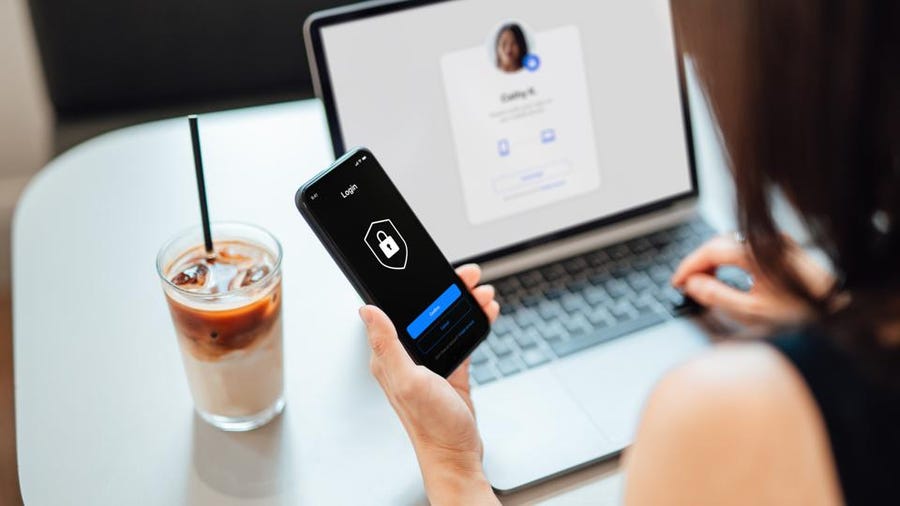IDENTITY THEFT: HOW TO PROTECT YOURSELF AND YOUR BUSINESS? The Financial Markets Authority, the Liège Public Prosecutor’s Office, and Karine Le Marchand, at first glance, these different legal and natural persons have nothing in common. However, one element connects them all: identity theft. A phenomenon that is not new, but which does not seem to be weakening. Each year, nearly 200,000 French people are victims.
Whether through a real estate rental ad, cold calling or a contest on social networks, criminals are doubling their ingenuity to extract personal information from you. Here we give you some advice on how to protect yourself from it and how to react if you are a victim of it.
What is identity theft?
First of all, a little reminder of what identity theft is.
Identity theft is a crime that refers to the use of personal information to identify a person without their consent to carry out fraudulent actions.
The criminal who retrieved your information can then open bank accounts, subscribe to financial services and even defraud other future victims of identity theft. The information used is diverse: first and last name, social security number, login credentials to your email, or bank information. The consequences are also varied and just as serious: offenses committed in your name, financial debt, filing at the Banque de France, or even banking bans, the victim finds himself stuck in a spiral of financial and material trouble.
Protect yourself in the real world
The first thing to do in dealing with identity theft is to avoid it. As for your physical documents, regularly check that you are in possession of your identity papers. If you realize that this is no longer the case, immediately report the loss or theft to the authorities. This will allow them and you to have a written record, the document given to you must be kept indefinitely.
When you throw away important documents, always remember to destroy them first. For companies, you can put them through a paper shredder, or for individuals, simply tear them into very small pieces, ensuring that fraudsters cannot reconstitute them. Never send copies of your identity documents to entities whose reliability you are not sure of. The government even recommends marking the copies you send with the subject, date, and recipient to prevent them from being reused.
Protect yourself online
On the internet, several behaviors are to be adopted if you want to use this beautiful tool safely, whether you are an individual or a professional:
Check the URL of the website you are visiting, although HTTPS is not a certainty as to the reliability of the site, its absence can still give you a clue.
Use different and sufficiently complex passwords for each login ID.
Subscribe to a VPN to hide your IP address, especially when using public WIFI.
Use double authentication, especially for online payments. More and more banks offer this service and sometimes even the possibility of creating single-use credit card numbers.
Be aware of phishing! These famous fraudulent emails that try to extract sensitive information from us by often posing as state agencies.
Digital safes are also an excellent way to keep documents, such as payslips, in digital versions and in complete safety. Many employers now use this service.
Bonus: to avoid untimely cold calling, which is also a vector of fraud, you can register for free on the Bloctel site set up by the State.
Am I a victim? What to do ?
A few simple steps to check that you are not the victim of usurpation: monitor your banking transactions, the receipt of tickets and fines and check if you have committed them, look at the internet results that appear when you enter your name, and finally, you can check with the Banque de France if you are on file.
If it’s too late and your identity has been misused, here’s what to do:
- Preserve all evidence of the violation.
- Report identity theft on all platforms and sites.
- File a complaint.
- Contact the Banque de France to verify the facts and notify the banking establishments.
- Have his identity papers revoked?

